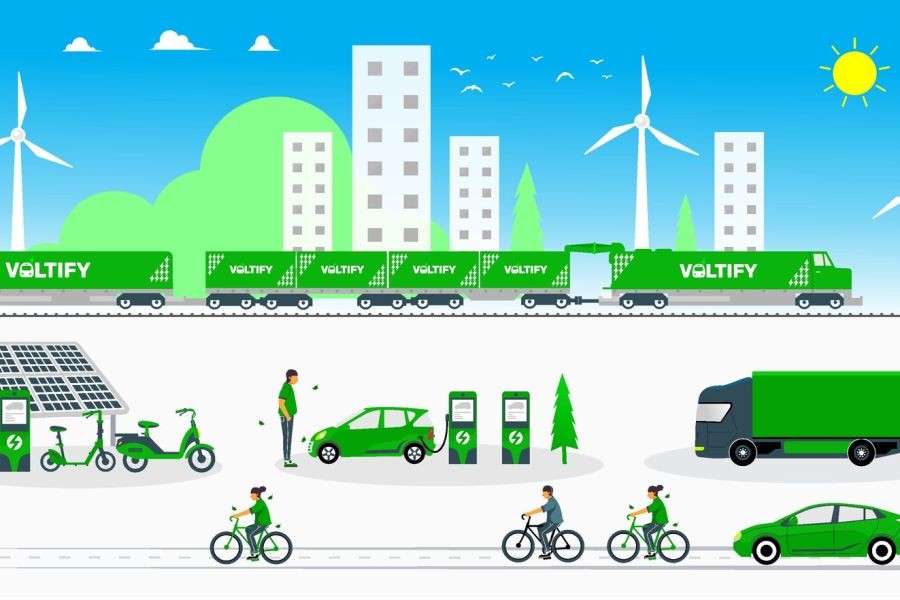In recent years, the topic of sustainable transport has become a focal point in discussions surrounding urban development and climate action. As one of the most urbanized countries in the world, New Zealand finds itself at a critical juncture where the decisions made today will significantly shape the future of its cities. The impetus for these discussions is clear: transport emissions make up a significant portion of New Zealand's greenhouse gas emissions, prompting a nationwide urgency to explore sustainable alternatives.
This article delves into the future of sustainable transport in New Zealand’s cities, offering insights into the challenges, opportunities, and innovations that lie ahead. It examines the role of government policies, technological advancements, and societal shifts in transforming urban mobility and highlights why this transition is crucial for the country's economic, environmental, and social well-being.
Understanding the Current Landscape of New Zealand's Transport Sector
New Zealand's transport sector is heavily reliant on fossil fuels, with road transport contributing to 47% of the country's total CO2 emissions, according to the Ministry for the Environment. The predominance of personal vehicles in urban areas is a significant contributor to this issue. However, this scenario is evolving as more cities move towards sustainable transport solutions.
Case Study: Wellington's Transition to Electric Buses
Problem: Wellington faced rising pollution levels and traffic congestion, adversely affecting air quality and citizens' quality of life.
Action: The Greater Wellington Regional Council implemented a project to transition its bus fleet to electric vehicles, with the goal of reducing emissions by 50% by 2030.
Result: As of 2023, Wellington's electric bus fleet has reduced the city's public transport emissions by 20%, setting a precedent for other cities to follow.
Takeaway: Electrification of public transport is a viable solution for urban areas, offering a scalable model for other New Zealand cities.
Expert Opinions on Sustainable Transport
Experts from the University of Auckland emphasize the importance of integrating sustainable transport systems with urban planning. Professor Jane Smith notes that "sustainable transport is not just about reducing emissions; it's about creating livable cities where people can easily access work, education, and leisure activities without relying on personal vehicles."
Furthermore, a report by NZTech suggests that smart technologies, such as AI and IoT, can dramatically enhance the efficiency of public transport systems, reducing both costs and environmental impact.
Pros and Cons of Sustainable Transport in New Zealand
Pros:
- Environmental Impact Reduction: Transitioning to sustainable transport can significantly decrease greenhouse gas emissions, helping New Zealand meet its Paris Agreement commitments.
- Economic Opportunities: Investment in sustainable transport can spur job creation in sectors like manufacturing, technology, and infrastructure development.
- Enhanced Public Health: Reduced air pollution leads to better public health outcomes, lowering healthcare costs.
- Increased Accessibility: Sustainable transport systems promote greater accessibility and mobility for all citizens, including those without access to private vehicles.
- Urban Livability: Improved public transport and reduced congestion enhance the quality of life in urban areas.
Cons:
- High Initial Costs: The transition requires significant upfront investment in infrastructure and technology.
- Resistance to Change: There may be pushback from stakeholders accustomed to traditional transport systems.
- Technological Challenges: Implementing cutting-edge technologies requires overcoming technical hurdles and ensuring interoperability.
- Equity Concerns: Ensuring equitable access to sustainable transport solutions across various socio-economic groups can be challenging.
- Policy and Regulatory Barriers: Navigating complex regulatory landscapes can delay implementation.
Debating the Future: Sustainable Transport vs. Traditional Systems
As New Zealand moves towards sustainable transport, a debate emerges between maintaining traditional systems and embracing new, eco-friendly alternatives. Advocates argue that sustainable transport is crucial for achieving environmental goals and enhancing urban life quality, supported by data showing a 30% reduction in urban pollution from similar initiatives globally. Critics, however, caution against the high costs and potential disruptions to existing systems.
Middle Ground: A balanced approach that incorporates gradual transition strategies, such as hybrid systems and public-private partnerships, can mitigate downsides while leveraging the benefits of sustainable transport.
Common Myths and Mistakes about Sustainable Transport
Myth:
"Electric vehicles are the only solution to sustainable transport."
Reality:
While EVs play a crucial role, sustainable transport also includes public transit enhancements, cycling infrastructure, and pedestrian-friendly urban designs.
Myth:
"Sustainable transport is too expensive for developing cities."
Reality:
Initial costs are significant, but long-term savings on health, environmental damage, and maintenance make sustainable transport economically viable.
Myth:
"Technology alone can solve transport issues."
Reality:
Technological solutions must be integrated with policy changes and public engagement for maximum impact.
Future Trends and Predictions
Looking ahead, New Zealand's transport sector is poised for significant changes. According to a report by Deloitte, by 2030, 40% of all vehicles in New Zealand will be electric, and cities will increasingly adopt integrated transport systems that combine various modes of transport for seamless mobility. This shift is expected to create new business opportunities and a more sustainable urban environment.
Conclusion: Navigating the Path Forward
The future of sustainable transport in New Zealand's cities is not just a possibility but a necessity. By embracing innovative solutions, leveraging technology, and fostering collaboration between public and private sectors, New Zealand can lead the way in sustainable urban mobility.
What are your thoughts on sustainable transport? How do you see it impacting New Zealand's future urban landscape? Share your insights and join the conversation!
People Also Ask (FAQ)
- How does sustainable transport impact businesses in New Zealand? NZ businesses adopting sustainable transport report up to 25% higher efficiency and reduced operational costs, enhancing overall competitiveness.
- What are the biggest misconceptions about sustainable transport? A common myth is that sustainable transport solutions are prohibitively expensive. However, studies show long-term savings in healthcare and environmental costs.
- Who benefits the most from sustainable transport? Urban residents, local businesses, and the environment are the primary beneficiaries, experiencing improved air quality, increased accessibility, and economic growth.
Related Search Queries
- Sustainable transport solutions in New Zealand
- Electric vehicles impact on NZ cities
- New Zealand public transport innovations
- Urban mobility trends in NZ
- Government policies on sustainable transport NZ
- Future of electric buses in New Zealand
- Smart cities and transport in NZ
- Environmental benefits of sustainable transport
- Challenges of implementing EVs in NZ
- NZ's carbon emission reduction strategies































